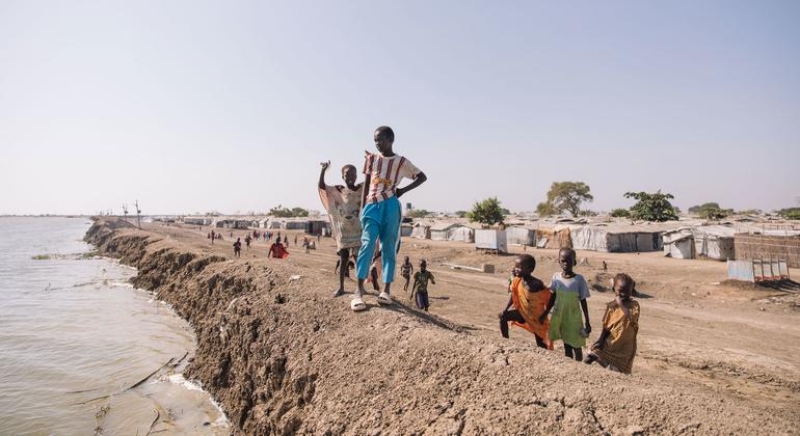- Israel Strikes Tehran with US Support Amid Nuclear Tensions |
- India Sees 9% Drop in Foreign Tourists as Bangladesh Visits Plunge |
- Dhaka Urges Restraint in Pakistan-Afghan War |
- Guterres Urges Action on Safe Migration Pact |
- OpenAI Raises $110B in Amazon-Led Funding |
Famine grips two South Sudan counties amid rising conflict

Two counties in South Sudan’s Upper Nile State are teetering on the brink of famine, the Food and Agriculture Organization (FAO) warned in a new report released Thursday.
The alert comes amid intensifying violence and a worsening food security crisis. Of the 13 counties in the state, 11 are now facing emergency levels of hunger. An estimated 32,000 people are experiencing catastrophic hunger conditions—almost three times higher than previously estimated.
“We are seeing the devastating impact conflict has on food security in South Sudan,” said Mary-Ellen McGroarty, Country Director for the World Food Programme (WFP). “Conflict doesn’t just destroy homes and livelihoods—it tears communities apart, cuts off access to markets, and sends food prices spiraling upward.”
Nationwide, 7.7 million people—more than half of South Sudan’s population—are projected to face acute food insecurity in the coming months. The situation is particularly dire for children, with 2.3 million suffering from malnutrition, up from 2.1 million at the start of the year.
The FAO anticipates these numbers will worsen as the country enters the lean and rainy season, which typically depletes food stocks and increases displacement due to flooding and impassable roads.
While some counties that have remained relatively peaceful have shown signs of improvement—thanks to enhanced crop production and humanitarian aid—the broader picture remains grim.
“These results are a testament to the dividends of peace,” said Meshack Malo, FAO’s Country Representative in South Sudan. “Where violence subsides, communities begin to recover.”
South Sudan, the world’s youngest country, gained independence in 2011 but quickly descended into a devastating civil war that formally ended in 2018 with a fragile peace agreement. Although the agreement has largely held, recent political tensions and outbreaks of violence—particularly in the Upper Nile region—now threaten to unravel hard-won gains.
“South Sudan cannot afford to sink into conflict at this point in time,” Malo said. “It would plunge already vulnerable communities into deeper food insecurity and widespread hunger.
The FAO stressed that improved humanitarian access is essential to address the escalating hunger crisis. Aid agencies must be able to reach vulnerable communities with life-saving food assistance and support.“Long-term peace is essential,” said WFP’s McGroarty. “But right now, it is critical that our teams can safely access and deliver food to families trapped by conflict in Upper Nile. We must bring them back from the brink and prevent famine.”
As the lean season looms and tensions rise, humanitarian agencies warn that immediate action—both to preserve peace and to ensure aid delivery—will determine whether tens of thousands survive the months ahead.

